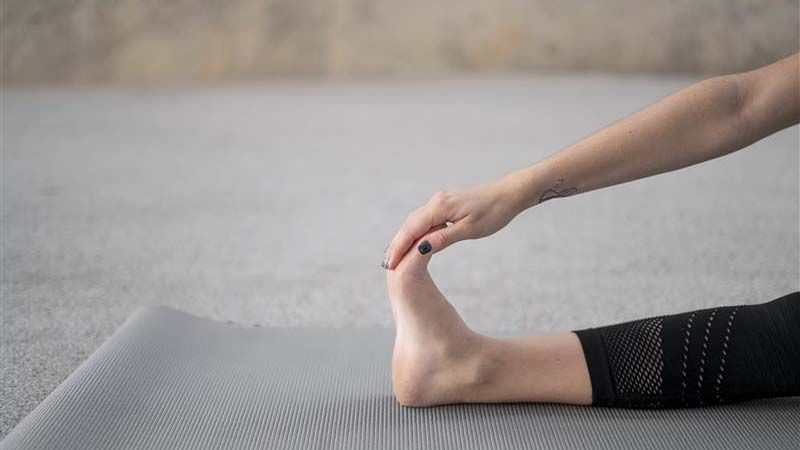How Many Kilometers Should You Walk In The Morning For Good Health?
- 15 months ago
Walking in the morning isn't just a routine—it's a cornerstone of a healthy lifestyle. As the sun rises and the world wakes up, taking a brisk stroll can invigorate both body and mind, setting a positive tone for the day ahead. But how far should you walk to maximize the health benefits of this simple yet powerful exercise?
Walking has long been celebrated for its numerous health benefits, from enhancing cardiovascular fitness to boosting mental clarity and promoting overall well-being. Whether you're aiming to manage weight, reduce stress, or simply start your day on the right foot, a morning walk can be your gateway to a healthier lifestyle.

How Many Kilometers Should You Walk?
The distance you should walk each morning depends on your fitness level, health goals, and schedule. Here are some guidelines to help you determine the right distance for you:
Beginner Level
If you're new to walking or haven't been active for a while, start with a shorter distance. Aim for 2-3 kilometers per day. This distance is manageable for beginners and helps in building stamina gradually. It's important to start slow and increase your distance over time to avoid overexertion and potential injury.
Intermediate Level
If you're moderately active and looking to maintain your fitness, aim for 3-5 kilometers per day. This distance provides significant health benefits without being too time-consuming. Walking briskly can also enhance cardiovascular health and help in weight management.
Advanced Level
If you're already fit and looking to improve your endurance or achieve specific fitness goals, aim for 5-8 kilometers per day. This distance can help you burn more calories, improve cardiovascular health, and build endurance. Monitor your body's response to ensure you are not overdoing it.
Related: 8 walking mistakes to avoid

Determining Your Ideal Distance
To find your ideal distance, consider the following factors:
- Current Fitness Level: Assess your current fitness level and choose a distance that matches it. Gradually increase your distance as you gain stamina and fitness.
- Health Goals: Define your health goals. Are you walking for weight loss, improving cardiovascular health, or simply staying active? Your goals will influence the distance you should aim for.
- Available Time: Choose a distance that fits into your daily schedule. Ensure it doesn’t cause stress or interfere with your other commitments.
- Personal Preference: Listen to your body. Choose a distance that feels comfortable and enjoyable. Walking should be a pleasant activity, not a chore.
Also check: Is walking good for lower back pain?
Ideal Time to Start Morning Walks
The best time to start your morning walk can vary based on personal preference and lifestyle. Here are some general tips:
Early Morning
Starting your walk between 5:30 AM and 7:00 AM can be ideal for several reasons:
- Cooler Temperatures: The air is usually fresher, and temperatures are cooler, making it more comfortable to walk.
- Less Traffic: There is less traffic and fewer people, providing a peaceful environment.
- Boosted Energy Levels: An early morning walk can help kickstart your day, increase your energy levels, and improve your mood.
Consistency
Consistency is key to making walking a regular part of your routine. Decide on a time that you can stick to each day. Whether it's early morning, late morning, or evening, the most important thing is to make it a habit.
Listen to Your Body
If you are not a morning person, find a time that suits you better. The best time to walk is when you feel most energetic and can enjoy it the most.
How to Prepare for a Morning Walk?
Preparing for a morning walk can enhance your walking experience and ensure you get the most out of your exercise. Here are some preparation tips:
- Wear Comfortable Shoes: Invest in a good pair of walking shoes that offer support and cushioning. Wearing the right shoes can reduce the risk of injury and improve the enjoyment of walking.
- Dress Appropriately: Choose lightweight, breathable clothing suitable for the weather. In colder months, layer your clothing to stay warm. In warmer months, opt for moisture-wicking fabrics to stay cool.
- Warm-Up: Spend a few minutes stretching or doing light exercises to warm up your muscles. A proper warm-up can prevent injuries and enhance your walking performance.
- Stay Hydrated: Drink a glass of water before you start your walk and carry a water bottle if you plan to walk a longer distance. It's important to stay hydrated, particularly in the warmer months.
Also Check: 7 Reasons Walking Is Better Than Coffee For an Energy Boost
Benefits of Regular Morning Walks
Regular morning walks offer numerous health benefits. The key advantages are:
- Better Heart Health: Walking helps improve heart health by lowering blood pressure and reducing the risk of heart disease. It boosts circulation and makes the heart work more efficiently.
- Weight Control: Walking regularly burns calories and helps maintain a healthy weight. When combined with a balanced diet, it can aid in weight loss and prevent obesity.
- Enhanced Mental Health: Morning walks can reduce stress, anxiety, and depression by releasing endorphins and promoting relaxation. It provides a break from daily stresses and offers time for reflection and mindfulness.
- Improved Digestion: Walking stimulates digestion and helps prevent constipation. A morning walk can kickstart your digestive system and promote regular bowel movements.
- More Energy: Starting your day with a walk can boost your energy levels and improve overall stamina. It helps maintain higher energy levels throughout the day.
- Better Sleep: Regular physical activity can help regulate your sleep patterns and improve the quality of your sleep. You can sleep deeper and more restoratively and fall asleep sooner if you walk.
Also Read: Walking After Dinner: Is It Really Good To Do So?
Conclusion
Walking is a versatile exercise that offers numerous health benefits. By determining the right distance based on your fitness level, setting a consistent walking time, preparing adequately, and making walking a regular part of your routine, you can improve your overall health and well-being. Whether you're walking 2 kilometers or 8 kilometers, the key is consistency and enjoyment. So, lace up your walking shoes and start your journey towards better health, one step at a time. Happy walking!








